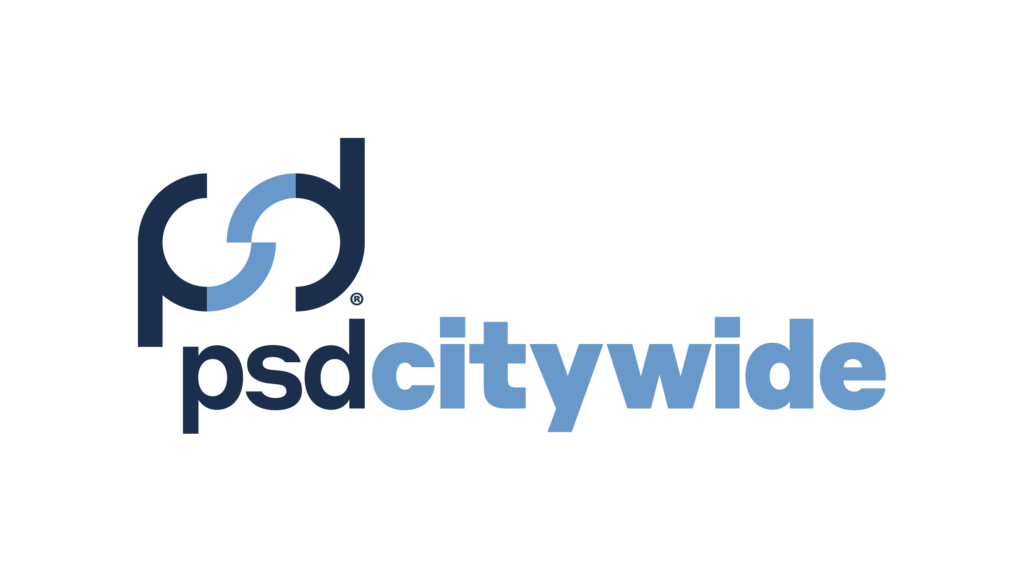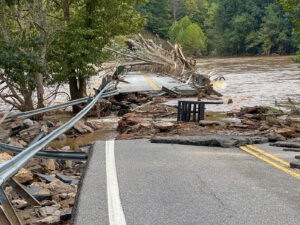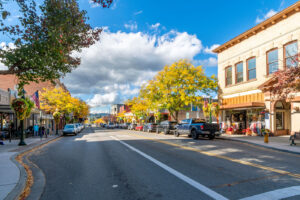I just completed my first term of political office as Mayor of North Frontenac in Ontario, Canada and I am gearing up for another four years.
In the first three years of my time as Mayor, I was focusing on trying to obtain Federal and Provincial funds to help us support our infrastructure needs, operational requirements, and to direct funds toward economic development and other projects. To avoid high annual taxation rates, we require additional funds to promote economic development, maintain infrastructure, improve health care, provide transportation, sustain affordable housing, and support other necessary services. Asking for money from others, and not getting the required amount of funds needed to promote, run, and sustain the Township is a difficult and humbling experience.
Throughout the process in which numerous applications and appeals for funding were denied, we began to wonder, why is it we need to ask for money and why are we not successful in acquiring the funds we need.
Like many municipalities in Ontario, North Frontenac is in need of supplementary funding in part due to the services downloaded from the Province in recent years. Additional funding was not made available to allow municipalities to effectively manage these newly downloaded services such as roads, paramedic services, and long-term care. Also, there has been a significant amount of regulatory changes that demand more staff time to implement and increase the costs of the services for our citizens. Additionally, the Ontario Provincial Police (OPP) announced a new billing model that added close to $900,000 annually to our policing costs. All this has a significantly negative impact on a small rural municipality. For every $50,000 increase in costs it equates to a 1 percent levy increase due to our small tax base.
I found that we cannot receive the money we need from the province for a number of reasons. Firstly, all municipalities in Ontario compete for a limited amount of available funds. Secondly, our financial situation limits our access to grants. We are often deemed to be too financially stable due to our advanced asset management plan and healthy reserves. Lastly, the criteria for most funding applications is based on population size as opposed to number of dwellings. This is an issue for North Frontenac since it is a cottage community with less than 3,000 full-time residents but around 4,000 dwellings and a total of approximately 8,000 part-time and full-time residents. All residents, whether permanent or seasonal, pay taxes and use our infrastructure and services.
In order to ensure a long-term sustainable community, we need to be self-sustaining and not be negatively impacted by things that happen outside our Township borders and outside of our own control. Our bold new program is called One Small Township. This innovative program could improve our community well being, decrease reliance on government grants, and address ever increasing expenses.
The program was launched in November 2017 in a Council resolution which allowed me to pursue the development of this program plan outside of my responsibilities as Mayor. Council is awaiting a presentation of the final concept which will take place in Spring of 2019. The program is based on the concept of contributionism. It is broadly defined by the act of sharing the responsibility to build and sustain a community for the betterment of all. This concept sees the community contributing to its success by working together and allowing the residents to have significant control of the destiny of the community. There are other programs related to this concept such as resource-based economy, sharing community, and collaborative economy. The overall concept is a driving force for a new era, and it is expected to lead to a more social, sustainable, prosperous, and economically stable community.
Contributionism functions with the support of community volunteers who make the choice to contribute to the program or not. In this concept, all residents of North Frontenac will have an opportunity to volunteer a minimum of three hours a week to help implement and sustain the program. People and/or businesses will be able to share equipment to assist in the implementation of projects designed to build our community. In return for their contribution, they will receive rewards from any of the projects under this program. The entire concept is one that will see people take pride and ownership of the community projects, reduce costs, and attract like-minded residents and businesses.
This model is based on a percentage concept whereby products generated from our projects would be distributed to the residents and businesses that contributed. For example, if we produced 900 kilograms of produce, 300 kilograms will go back into the community to provide rewards for those who contribute, and the remaining 600 kilograms would be sold to North Frontenac residents who are not contributors or sold outside the community at normal market costs. The revenue from those sales would be distributed as follows: one-third of the revenue would be provided to the food growing project to cover expenses, one-third would be used to pay back the investment, and one-third would go into a sustainability fund to sustain current projects and/or to fund new projects. Once investments have been paid back, two-thirds of the revenue would go into the sustainability fund.
The goal is for the sustainability fund to grow to a state whereby there may be an excess of funds above and beyond the amount required to cover the sustainability of all combined projects. With a surplus in the sustainability fund, we can utilize those funds to cover our infrastructure needs thus negating the requirement to raise taxes and/or to apply for grants. Eventually, I hope that we will be able to reduce taxation and still be able to maintain and sustain our Township with high-quality service delivery.
The concept of contributionism is represented in a small way in our community today through the number of volunteers and volunteer projects that are undertaken to improve our community. They share the love of the community and share their expertise to make North Frontenac a better place for our residents and visitors. It is this passion from volunteers that I believe will make this project successful.
Our current residents possess a wide and diverse set of skills that can be used to build self sustaining communities. This concept will allow us to resurrect our community, provide products and services to our residents, generate new businesses and employment, and allow for revenue generation to build a sustainability fund.
To date we are in the final stages of implementing a few key projects which include:
- High Tech Eco Village – 200 acres to work, live, and play
- Aquaponics – soil and water-based food production
- Apiary – honey production and bee sales
- Precious Plastics – plastic reuse operation
- Off grid Community (200 acres) based on the following principles:
- Natural and recycled materials;
- Passive heating and cooling;
- Electricity generation;
- Water harvesting;
- Contained sewage treatment; and,
- Food production
- Health and Wellness Center – medical, massage, physiotherapy, chiropractor etc.
- First Nation Center – tanning, crafts, and education
- ECO Tourism – trails and wilderness experiences
- Guided Back Country Camping & Wilderness Survival Program
Since launching this project, it has attracted local and international attention. I believe that the above projects will attract new residents and children to our school, diversify our demographics, support existing businesses, attract new businesses, and provide unique tourism opportunities. All involved projects will utilize the contributionism model and will attract a variety of full and part time jobs.
Two of the projects are designed to build environmentally friendly and self sustaining communities within the Township. These community concepts include producing our own electricity and food. I have another existing business ready to expand its operation and build tiny home accommodations and a large-scale food-growing operation to produce fruits and vegetables and water-based foods such as fish, shrimp, and lobster. The apiary, which was our test project, was launched this past summer and it took just under two hours to raise the required investment once the business case was published.
I am currently working on an investor forum model. This forum will be established to allow investors to pool their money together to reduce their own individual risk, as is the case with most current investments. The forum will be responsible for reviewing project applications and prioritizing, approving, and distributing the funds.
Since the planning of the program has begun, a group has shown interest in investing in our community. The group, who has requested to remain anonymous, is interested in donating up to $8 million to initiate the major projects that have been identified to begin in the next year. This group is interested in the community’s innovative plan to improve its citizens’ well-being, support the environment, and create a financially stable township. The funds would be a one-time donation and any other projects could be financed through interest-free loans.
Since our plan is one of a kind, it comes with some challenges. The biggest challenge is to have a process to track contributionism and the rewards that come as a result. The program must also comply with the Canada Revenue Agency requirements when it comes to assigning a value to the contribution and a value to the rewards that they receive as a result. Another challenge is to control the excitement. We have received many offers of assistance from around the globe and the challenge is to make sure this program is implemented in a controlled step-by-step methodology to make sure we implement projects in the best way in order to ensure success.
People today are looking seriously at a new way of living. Taxation and the ever-increasing high cost of living are threatening the lifestyle of our citizens. By implementing this model, it will allow for an improved work-life balance, personal prosperity, and it will contribute to the overall community well-being. I am very excited about the concept, the results to date and the interest this program has generated from the people inside and outside the community that are interested in the well-being of all residents.
RON HIGGINS has served as the Mayor for North Frontenac Township since 2014 and Warden for Frontenac County since 2018. Prior to becoming Mayor, Ron was co-owner and President of WREN Group, a business management company. Ron has served as a member of the Board of Directors for both the Frontenac Community Futures Development Corporation (CFDC) and the Federation of Ontario Cottager’s Association (FOCA). A key project successfully implemented in North Frontenac was to become the first municipality in Canada to be designated as a Dark Sky Preserve.



